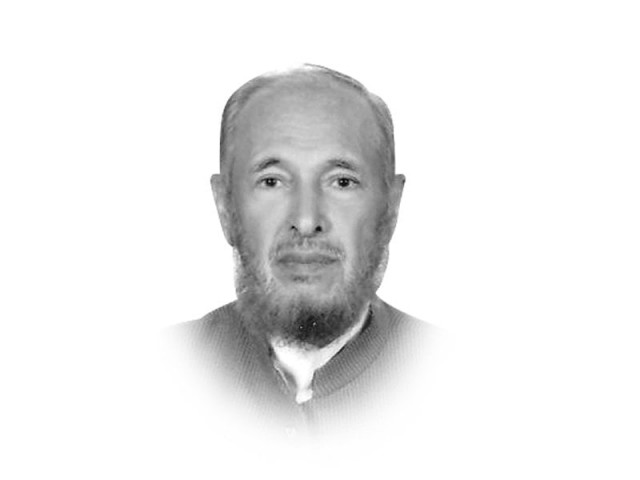Pakistani politics driven by vendetta, self-aggrandisement and expediency
Punishing political rivals by employing the power of the state is an old phenomenon

The writer is a former chief secretary of K-P and a former ambassador. The views expressed here are his own
Punishing political rivals by employing the power of the state is an old phenomenon. It goes back to the immediate post-independence years of the 20th century.
One apparent reason was the lack or absence of democratic traditions in the political parties of the subcontinent which claimed to represent the Muslims of South Asia.
During the post-Independence years, there was not much attention or emphasis on promoting the causes of pluralism and democracy. Instead there was a huge emphasis on conspiracies to isolate, sideline or eliminate political rivals ---a mindset that has continued to prevail to this day.
The infighting among politicians that erupted soon after the partition of 1947 was clearing the way for a gradual ascendance of the military in the realm of policy formulation. That paved the way for the full-fledged imposition of military rule in 1958 banishing the dream of democratic governance — perhaps for all times to come.
Since 1958, real and genuine democracy has not been allowed to take roots in the country. Even if there is a façade of democracy underpinned by mostly a questionable electoral process, the real decision-makers in critical sectors like defence, internal security, and foreign policy have been those who wield power and authority rather than the elected governments of the country.
As a consequence of the existence of more than one power centres in the country, there has been either a battle for supremacy or more often a meek capitulation of authority.
The system that such nexus among state institutions has delivered is toxic, unsavoury and does not generate any affection for the state amongst rank and file Pakistanis.
The spectre of a chief justice, not long ago, calling into question every move of a government and holding media talks every day is still fresh in memory.
Politicians, public services and businesses have now got to make adjustments to remain compatible with the dictates and needs of a new hybrid political system.
In the ‘new Pakistan’ there seems be a relentless pursuit of political rivals seeking to book them in real or perceived crimes to silence the opposition or to win over those who could be useful to the “state.”
This arrangement would work and ensure continuity because it would be in harmony with the wider ambitions and goals of the important stakeholders.
To the common man the hybrid system would not deliver much as there is an overwhelming emphasis on ‘rooting out corruption,’ ignoring many other pressing issues that demand attention.
The menace of corruption must be dealt with an iron hand. There are no two opinions on that. But that has to be done within the institutional framework of rules and guidelines. Even with the best of endeavours and commitment, it will be impossible to eliminate the scourge of corruption completely. But to make it appear as if that is the ultimate challenge and the mother of all ills and evils is ridiculous.
There are more than 25 million children not going to schools; the health system is not delivering in most places; power outages are common; prices of electricity, gas, petrol, construction material like steel, timber, cement have skyrocketed; prices of medicines have gone beyond the reach of poor and middle-class households and poverty has significantly increased. The millions of impoverished Pakistanis are crying for better living conditions, for economic opportunities, for quality education, for clean water and shelter. Yet the state machinery is churning out statement after statement vociferously claiming to have guaranteed a better and prosperous Pakistan as the ‘corrupt’ are caught and consigned to jails.
The climate change takes its toll. Water scarcity is a problem that should engage attention of the rulers. Look at what is happening in neighbouring India where 40 per cent of the population is not getting clean drinking water. In South India, cities have gone dry with no improvement in sight for Mumbai, Chennai, Karnataka and many other areas. This will happen in Pakistan if immediate measures are not taken to deal with the climate catastrophe.
As aquifers dry up, as carbon emissions increase, as the surge in population continues taking its toll on farmland, clean air, and clean water and as diseases connected with atmospheric pollution increase, the state will run out of options on how to deal with an alarming scenario. Time to act is now. And this can happen only if confrontation with India were to end and the two neighbours begin to collectively address the menace of pollution, conservation of water, restricting soil erosion, coordinating policies and exchanging data on the whole range of issues that the looming climate crisis has generated .
Resources for addressing the climate disaster, cleaner urban environment, creating job opportunities, lifting people out of poverty can only be found when confrontation with India would end.
Are the rulers in Islamabad taking any notice of the grave challenges that the country confronts? Or shall we see more of the same political bickering that we have become so fatally accustomed to seeing for all these agonising long years since Independence?
Published in The Express Tribune, July 4th, 2019.
Like Opinion & Editorial on Facebook, follow @ETOpEd on Twitter to receive all updates on all our daily pieces.















COMMENTS
Comments are moderated and generally will be posted if they are on-topic and not abusive.
For more information, please see our Comments FAQ